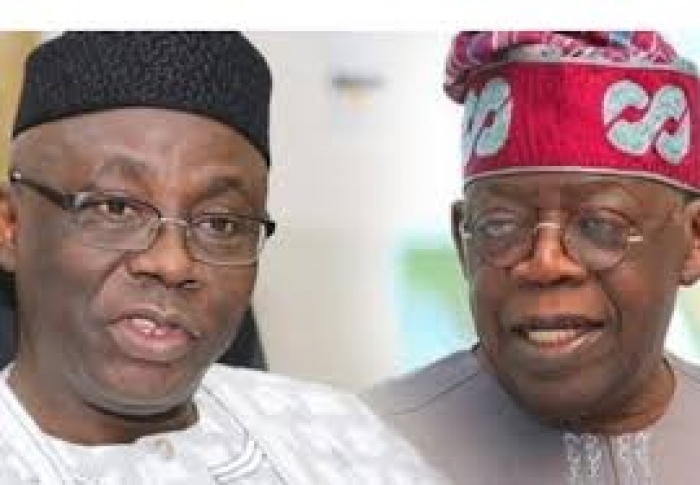In a fiery Easter Sunday state-of-the-nation address delivered in Lagos, Tunde Bakare, the serving overseer of the Citadel Global Community Church, delivered a stinging rebuke of President Bola Tinubu’s leadership, accusing him of fostering a dangerous form of politics that threatens Nigeria’s democratic fabric.
Bakare, a former presidential aspirant and one-time running mate to Muhammadu Buhari, warned Tinubu against the perils of absolute power, urging him to “stop playing God” and lead with humility and empathy in a time of national crisis.
A Nation on the Brink
Addressing congregants and the wider nation, Bakare painted a grim picture of Nigeria’s political and economic state under Tinubu’s administration. He decried the descent into what he described as “a mafia state,” driven by legislative rascality, institutional decay, and unchecked executive authority.
“The two main contenders in the ongoing institutional immorality Olympics are the executive and the legislature,” Bakare said, citing the suspension of Senator Natasha Akpoti-Uduaghan and the controversial declaration of a state of emergency in Rivers State as signs of overreach and systemic rot.
He also lambasted the Senate’s dismissal of Akpoti-Uduaghan’s sexual harassment allegations against Senate President Godswill Akpabio. The conduct of Onyekachi Nwebonyi during the hearings, particularly his verbal assault on former minister Oby Ezekwesili, was described by Bakare as “street-level vitriol,” further reinforcing his concern over the degeneration of political decorum.
Economic Hardship and Human Suffering
Turning to the economy, Bakare highlighted the severe hardship Nigerians are facing under Tinubu’s reforms. He pointed to soaring food prices, a 430% increase in fuel costs, and widespread poverty as evidence of policy failure. Citing data from the Nigerian Economic Summit Group, he noted that the country now ranks among those with the highest misery indexes globally.
Bakare recalled the tragic stampede deaths during food distribution efforts in late 2024, especially the horrific reports of parents throwing their children over fences in desperation. “These scenes,” he said, “are haunting reminders of a nation in distress, and eerily reminiscent of biblical famines.”
Call to Action: From Prayers to Pragmatism
While acknowledging some gains—such as a $5 billion rise in reserves—Bakare stressed that prayer alone can no longer carry the weight of national recovery. “People of faith have prayed to the point of weariness,” he said. “Any call for prayer now appears to be a mere religious ritual. What we need is action.”
He urged Tinubu to heed wise counsel and adopt a “coordinated programme” to rescue Nigeria. This includes emergency survival interventions, economic stabilisation, debt reengineering, structural reforms, and industrialisation.
Central to his proposed recovery strategy is the creation of a “Consolidated Value Investment and Development Fund”—a reimagined version of the COVID Fund he advocated during the pandemic. This fund, he said, should be decoupled from oil dependency and geared toward inclusive, sustainable growth.
A Personal History, A Longstanding Rift
Bakare’s sharp critique also carries a personal edge. Once close political allies, there is no love lost between him and Tinubu. Bakare has long questioned Tinubu’s political morality, dating back to his tenure as Lagos governor. On the eve of Tinubu’s 2023 inauguration, Bakare declared he would not call him “my president,” citing alleged electoral malpractice.
Though he has been accused of staying silent during Buhari’s controversial administration—perhaps due to their past alliance—Bakare insists his advocacy for good governance remains steadfast.
Conclusion: A Nation at a Crossroads
In his closing remarks, Bakare appealed to the conscience of the nation and its leaders: “No man is wise enough nor good enough to be trusted with unlimited power. Mr President, please stop playing God.”
He called for psychological evaluations for political aspirants and stressed that only responsible leadership, rooted in humility, honesty, and vision, can bring Nigeria back from the brink. “With courageous, empathetic, and visionary leadership,” he said, “Nigeria can live again.”
